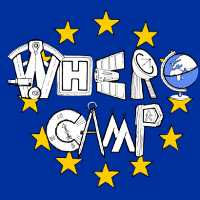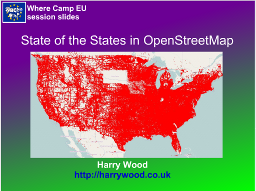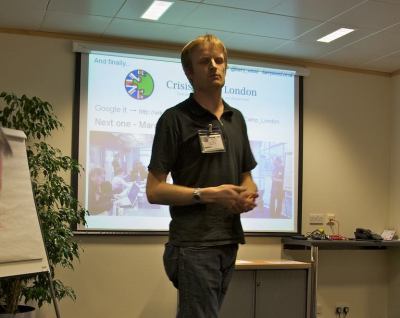For the past few months I’ve been doing some work for placr, and this week I’ve joined the team full-time.
I’m working on a new transport related API *, with some interesting geolocation and realtime dimensions to it. Currently this is all aimed at partner projects and B2B type clients, so I’m afraid there’s nothing fun to show you yet. Hopefully we shall go public with an API at some point, but it’s not the priority at the moment.
The work is very interesting, and now that I’m not splitting up my week with other things I can try to build up a bit more momentum. We’ve been starting from scratch. A fresh subversion repo! I wanted to build a RESTful API outputting both XML and JSON, so I’m doing this in Ruby on Rails. I settled on this after doing some experiments with django piston first. Some interesting problems encountered with both though (despite this being very much core to what these frameworks are supposed to be good at) Still plenty of framework details to work out, but it’s all good fun. I’ve also been using various libraries for HTML scraping.
The team is following (and getting involved in) the various open government data debates, because we’re looking at making use of some of these datasets. These are a moving target at the moment though, so as we look to develop on top of these things, agility is going to be important.
* What’s an API?
These days I’ve been socialising far too much with techy people, and was rather taken aback when someone (might have been my mum) interrupted me in the middle of my well rehearsed little job description to ask “What’s an API?”. It stands for Application Programming Interface.
I rather liked the way Richard Boulton described it as he demo’ed his API at last weekend’s rewired state event. Pointing at a this screen full of data he said “It may not look very nice to you, but to a developer this is beautiful”. That particular screen full of JSON formatted registry office data did look beautiful to me, so I developed this thing last Saturday. An example of an API and an application built to use it.









